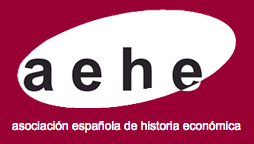Covering fissures. Local finance and taxation reform in Extremadura (1750–1936)
DOI:
https://doi.org/10.1016/S1698-6989(06)70251-XKeywords:
Local finance, Rustic municipal property, Liberal privatisation, Taxation reform, Extremadura, Modern and contemporary, Spain, H71, H72, N93, N94Abstract
Before liberal reform, rustic property was the main source of income of Extremadura's local finance. Thanks to it, the town hall of this region defrayed the own expenses of municipal administration and part of the taxes which might be paid by means of neighbouring apportionment. The municipalisation of the apportionments did not imply equality in the fiscal discharge, but, at least, mitigated the Royal Finance's pressure over the common run of population. The crusade which was started in Spain against the rustic municipal patrimony from the middle of the 18th century, concreted in the civil disentitlement since 1855, obliged to repair the accounts of Extremadura's local finance by way of other financing methods more burdensome to the community. These methods, characterised by the extra load over the State duty from 1845, ended up by imposing a new budget structure of fiscal nature which, besides hindering the development of the services linked to local finance, reinforced the taxation discrimination of the most unfortunate layer of Extremadura's society.Downloads
Downloads
How to Cite
Issue
Section
License
Aquellos autores/as que tengan publicaciones con esta revista, aceptan los términos siguientes
- Los autores/as conservarán sus derechos de autor y garantizarán a la revista el derecho de primera publicación de su obra, el cuál estará simultáneamente sujeto a la Licencia de reconocimiento de Creative Commons Reconocimiento-No comercial-Sin obra derivada 4.0 Internacional que permite a terceros compartir la obra siempre que se indique su autor y su primera publicación esta revista, y no permite hacer uso comercial de la misma ni tampoco obras derivadas.
- Los autores/as podrán adoptar otros acuerdos de licencia no exclusiva de distribución de la versión de la obra publicada (p. ej.: depositarla en un archivo telemático institucional o publicarla en un volumen monográfico) siempre que se indique la publicación inicial en esta revista.
Plagio y fraude científico
La publicación de un trabajo que atente contra los derechos de propiedad intelectual será responsabilidad de los autores/as, que serán los que asuman los conflictos que pudieran tener lugar por razones de derechos de autor. Los conflictos más importantes pueden darse por la comisión de plagios y fraudes científicos.
Se entiende por plagio:
- Presentar el trabajo ajeno como propio.
- Adoptar palabras o ideas de otros autores sin el debido reconocimiento.
- No emplear las comillas u otro formato distintivo en una cita literal.
- Dar información incorrecta sobre la verdadera fuente de una cita.
- El parafraseo de una fuente sin mencionar la fuente.
- El parafraseo abusivo, incluso si se menciona la fuente.
Las prácticas constitutivas de fraude científico son las siguientes:
- Fabricación, falsificación u omisión de datos y plagio.
- Publicación duplicada.
- Conflictos de autoría.





